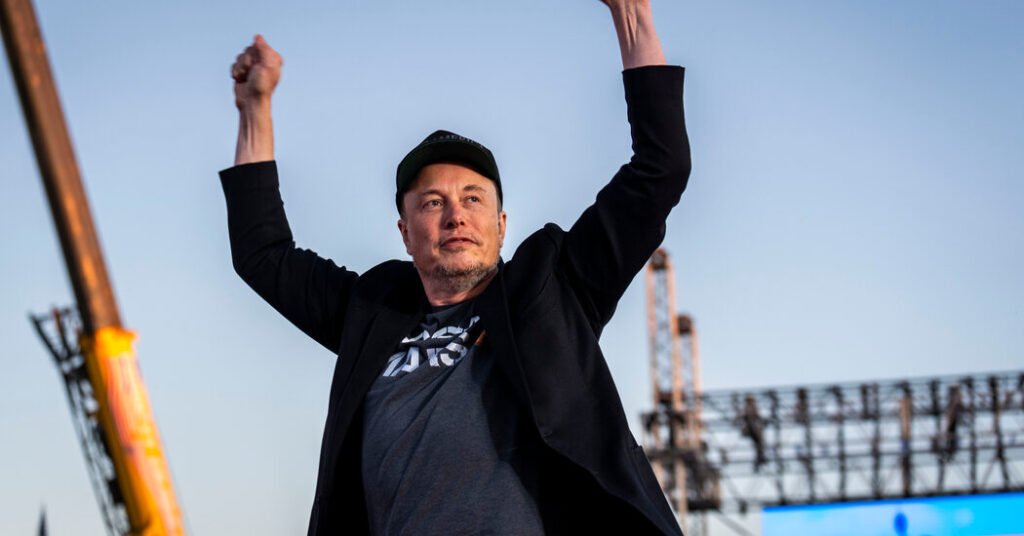Elon Musk is dramatically accelerating efforts to use his wealth to help Donald Trump win Pennsylvania, inviting new legal scrutiny in the process.
Musk announced Saturday night that he would “randomly” give away $1 million a day to registered Pennsylvania voters who signed conservative petitions put together by his super PAC. The sweepstakes is part of Mr. Musk’s effort to register voters in battleground states before Monday’s deadline.
Federal law says it is a crime for anyone to “pay, offer to pay, or accept payment to register to vote or vote.” According to the Justice Department’s guidance, this includes “anything of monetary value, including cash, alcohol, lottery tickets, welfare benefits such as food stamps.”
But some benefits that help people vote are legal and common. For example, organizations often provide rides to voters to vote, and companies often offer Americans paid time off to take time to vote, the guidance says. And importantly, Mr. Musk’s supporters say that because Mr. Musk is not paying directly for voter registration, but for petition signatures, which happen to be visible only to registered voters, They claim it’s not illegal.
Since introducing the petition earlier this month, Musk has gradually increased benefits to encourage people to sign it. Musk initially offered signatories $47 per referral to those who referred them. He then increased the offer to $100 and said he would pay both the signer and the referrer directly.
Some election lawyers suggested that Mr. Musk was inching toward a legal boundary. On Saturday night at City Hall in Harrisburg, Pennsylvania, Mr. Musk offered the first $1 million payment and handed a supersized check to John Dreher, a voter he called on stage.
Campaign finance lawyer and advocate Brendan Fisher told the Times two weeks ago that he believes the first iteration of the idea, a $47-per-refer mechanism, has its limits. However, he said that he is gradually becoming more cautious.
“I thought the initial arrangement was legal. The PAC was just paying one person to refer another person to sign a petition that made no mention of registration or voting. “The latest version of this plan is much closer to the legal line,” he said. “If all Pennsylvania-based petition signers were eligible, there would be little question of legality, but requiring payment at the time of registration would definitely violate the law. It is prohibited to give anything of value to induce or reward a person.
Musk’s super PAC did not immediately respond to a request for comment. Mr. Musk has surrounded himself with a group of executives, friends and political experts who he believes can offer innovative perspectives on how to approach mundane tasks like voter registration. However, no matter how you do it, voter registration costs a lot of money for each voter. It’s done.
Brad Smith, former chairman of the Federal Election Commission, said it’s “kind of a gray area” but “not that close to the red line.”
“He’s not paying them to register to vote. He’s paying them to sign petitions, but only people who are registered to vote sign petitions. So I think he’ll be fine here,” he said.
Josh Shapiro, Pennsylvania’s Democratic governor and former attorney general, said Sunday on Meet the Press that the gift is “something that law enforcement can consider.”
Musk’s super PAC said it would expand the prize on Tuesday, awarding $1 million a day to registered voters in any of seven battleground states, not just Pennsylvania.
The total payout for the $1 million prize would cost Musk’s super PAC $18 million.

